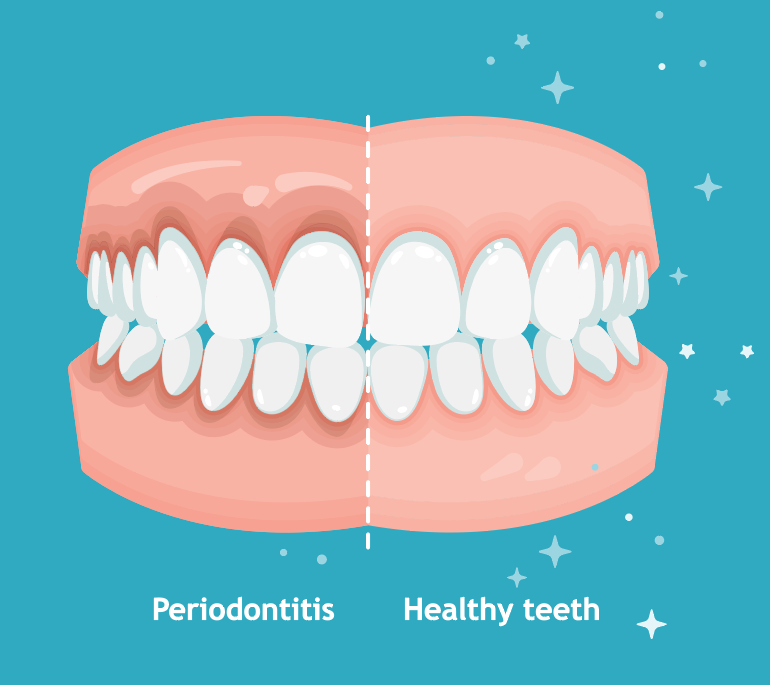
Periodontal therapy treats periodontal disease (gum disease), which can be devastating and result in the loss of your teeth. Periodontal disease is caused when the bacteria that naturally occur in our mouth cause an infection deeper in the gums and bone. Ultimately the teeth are lost either due to the infection or because they become loose due to bone loss. Today periodontal disease can be managed with periodontal therapy to help you keep your smile healthy and beautiful for a lifetime. There are different types of treatment and ongoing management for periodontal disease depending on the severity and your individual risk factors.
WHAT IS GINGIVITIS?
Gingivitis occurs when the bacteria that naturally live in your mouth cause an infection in the gums. The gum tissue will become red, puffy, sore and bleed easily to the touch during brushing or flossing. Periodontal therapy treats gingivitis and helps prevent the development of periodontitis.
WHAT IS PERIODONTITIS?
Periodontitis is caused by the same bacteria as gingivitis but the effects of the bacteria have spread, causing damage to the bone surrounding the teeth. This bone holds the teeth tightly in the jaw and when it dissolves away the teeth can become infected and ultimately lost. Periodontal therapy is critical in treating this more advanced form of gum disease and preventing further bone loss.
WHAT IS SCALING & ROOT PLANING?
Scaling and root planing is the mechanical removal of bacteria, plaque, and tarter from the teeth and roots, above and below the gum level. This is done in a limited way during any hygiene visit, however to treat more advanced gum disease more thorough cleaning is required. The more bone you lose, the easier it is for bacteria, plaque and tarter to build up. This makes removal take longer and require more effort, but is necessary to allow healing to occur. Both ultrasonic and hand instruments will be used. Periodontal therapy may take between one and two appointments based on your individual needs. For your comfort, the hygienist will often recommend numbing the area being cleaned.
